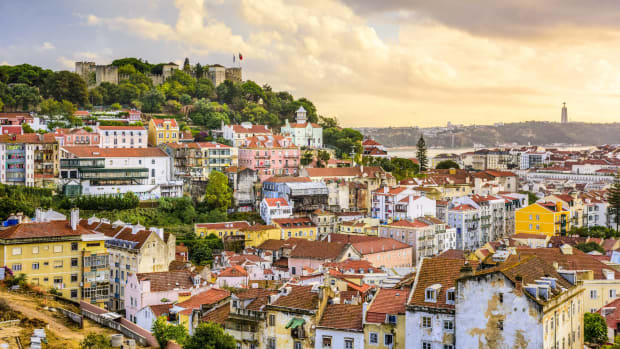
While use of ChatGPT divides company managers and university professors, the artificial intelligence platform's appearance in the travel industry has largely been presented as "revolutionary."
Frequent travelers often use it to scan multiple flight aggregators for the best possible fare while sites such as Expedia (EXPE) and Booking.com (BKNG) have openly talked about using it to answer traveler questions and speed up customer service.
DON'T MISS: People Using ChatGPT Hack to Travel to Europe for Less Than $1,000
Going a step beyond asking ChatGPT to throw out some cheap plane tickets and hotel rates, some travelers have used it to map out an entire itinerary across several foreign cities.

Shutterstock
'ChatGPT, Give Me A Sunny Destination'
After seeing similar initiatives seep into the traveler culture, travel site Points Guy Managing Editor Jordan Waller asked ChatGPT to suggest a "sunny destination" within a five-hour flight of London and map out "everything from the destination and hotel to restaurants, food and sightseeing."
"My plan was simple," writes Waller in an extensive account of the experience. "I'd use ChatGPT to craft a two-day city break itinerary, letting it select everything from the destination and hotel to restaurants, food and sightseeing. I would surrender myself entirely to the machine."
Within minutes of Waller typing in those guidelines (another request was "good food, arts and culture") the AI platform suggested Spain's Barcelona once and Portugal's Lisbon twice after Waller tested entering the same request in several times.
Waller decided to go with the Portuguese capital and started scrolling through accommodations.
'Little Consideration Had Gone Into The Selection'
"After some prompting, the bot provided recommendations for budget and points hotels," he wrote. "This seemed promising. However, on closer inspection, it was obvious little consideration had gone into the selection. The location of the hotels ChatGPT recommended would mean I'd have to do a lot of walking, use public transport or take frequent Uber rides to reach the center of town, something I was keen to avoid."
Problems also started to arise after Waller moved on to food and cultural recommendations. While ChatGPT suggested a "list of well-reviewed breakfast and lunch venues, sightseeing spots, bars and even a magic show," it struggled to take personal preferences despite multiple repetitions and logistics of getting from one place to another into account.
"When I asked for food suggestions, ChatGPT repeatedly recommended I eat octopus (a food I dislike) at various restaurants," Waller wrote. "Despite repeatedly telling it not to, ChatGPT kept suggesting octopus."
Ultimately going with what ChatGPT suggested and finding it not "any better than following the first list you find on Google," Waller concluded that the platform can be used to quickly generate some booking and itinerary suggestions.
But to get the kind of meaningful experience for which many travel, one will still need to spend significant time going over and planning the suggestions the chatbot pumps out — while having one somewhat unusual trip may not be a big deal for someone who lives relatively close to Lisbon, the stakes get higher for Americans coming over for an infrequent visit and really trying to maximize their experience.
"My standards might have been high, but I don't think that's bad," Waller wrote. "The world is here to be explored, not to stand in queues and follow the biggest crowd you see."







